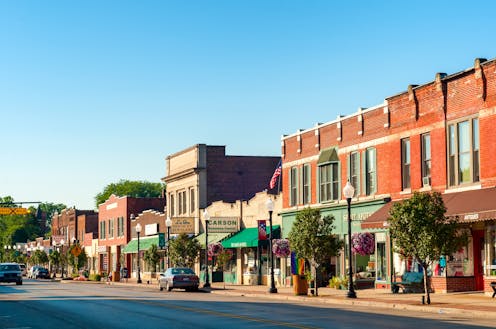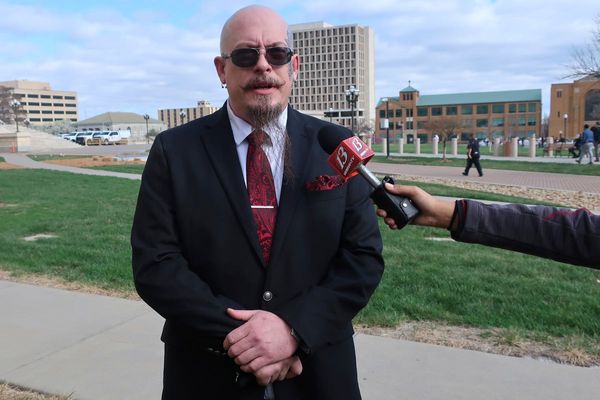
During the COVID-19 pandemic, the demographics of cities shifted. As stay-at-home orders, remote work and bubbling reduced social interaction, and restaurants, venues and arts destinations shut down temporarily, people considered leaving big cities.
And as public health restrictions were lifted, the cost of living increased. Smaller urban centres saw this moment as an opportunity to capitalize on the desire for a higher quality of life and a more “authentic” existence. Smaller and mid-sized cities in North America invested in strategies to attract new residents.
In this episode of The Conversation Weekly podcast, we spoke with two urban theorists about why people were leaving larger cities for smaller ones, how authenticity was marketed using social media influencers, and why smaller and mid-sized cities are underrated.
Avi Friedman is a professor of architecture at McGill University in Montréal, Canada who has looked at demographic trends in small and mid-sized cities in Canada. He explains that smaller cities need to recruit new residents in order to collect taxes.
“It all has to boil down to economics,” Friedman explains. “They need taxpayers — it is a major issue in making the city work. When there is a negative migration and people moving away, it usually puts at risk the funds of these communities, meaning that there is no sources of income.”
David A. Banks is a lecturer in the Department of Geography and Planning at the University at Albany, State University of New York, United States, and the author of The City Authentic, which will be published in April. He describes authenticity as essential to small cities’ survival, as they apply it to themselves to attract new residents looking for an escape from larger cities.
The city authentic, Banks describes “encourages people to think of the city as a place to be authentically you and to get away from these pre-packaged, commodified notions of how to live your life.”
It’s meant to appeal to younger residents, who may want to relocate for a better quality of life, and maybe own property and start a family, further rooting in the community.
“People who live in small towns know their neighbours. They meet either in community clubs and in a church. It is a different type of relations that create another aspect of what it means to live in nice places,” says Friedman.

But there’s a downside to this. When smaller cities successfully recruit new residents, it can have a negative impact on the older ones. Banks says that “what it did do is make everything unaffordable, literally like triple or quadruple digit percentage increases” in the cost of living.
But it appears the trend of leaving large cities to move to smaller ones is reversing. For people to stay, smaller cities need to invest more in amenities and infrastructure to support the population growth.
Listen to the full episode of The Conversation Weekly to find out more.
This episode of The Conversation Weekly was produced and written by Mend Mariwany who is also the show’s executive producer. Sound design is by Eloise Stevens, and our theme music is by Neeta Sarl.
You can find us on Twitter @TC_Audio, on Instagram at @theconversationdotcom or via email. You can also sign up to The Conversation’s free emails here. A transcript of this episode will be available soon.
Listen to The Conversation Weekly via any of the apps listed above, download it directly via our RSS feed, or find out how else to listen here.
David A. Banks received funding from the Phoebe Bender Endowment Fund and is a member of the Democratic Socialists of America and a delegate to the Troy Area Labor Council.
Nehal El-Hadi does not work for, consult, own shares in or receive funding from any company or organisation that would benefit from this article, and has disclosed no relevant affiliations beyond their academic appointment.
This article was originally published on The Conversation. Read the original article.







